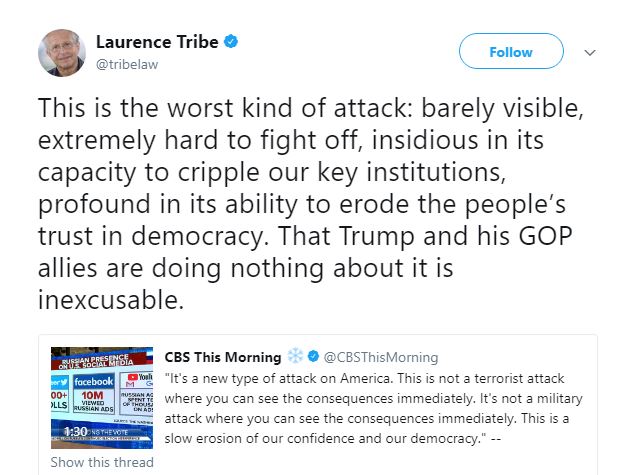That story is still being spun by the US (Leftist) media, and the Finnish media who take dictation straight from their pages…
House Intel Committee Democrats Started The False ‘Russia On Facebook’ Story
Enter Michael Isikoff, Yahoo News’ intrepid reporter who loves taking stories from Fusion GPS, the DNC-funded firm that created the dossier. Isikoff was excited to reportthat Robert Mueller, the special counsel appointed to investigate “Russian election interference,” has focused his sleuthing on whether the Trump campaign had anything to do with Russia’s activity on social media: “In just the last few weeks, his prosecutors have begun questioning Republican National Committee staffers about the party digital operation that worked with the Trump campaign to target voters in key swing states. They are seeking to determine if the joint effort was related to the activities of Russian trolls and bots aimed at influencing the American electorate, according to two of the sources.”
The story Isikoff advances here is that since Russia’s social media campaign was sophisticated and surely affected the election’s outcome, it is likely that Russia’s social-media trolls received marching orders from the Trump campaign. Not really.
There’s No Evidence a ‘Sophisticated’ Effort Existed
Right away, The Washington Post’s Philip Bump committed a random act of journalism and correctly pointed out that Mueller’s entire premise (if Isikoff’s reporting is correct) is bonkers: “All of that, though, requires setting aside what we actually know about the Russian activity on Facebook and Twitter: It was often modest, heavily dissociated from the campaign itself and minute in the context of election social media efforts.”
Bump concludes: “As it stands, the public evidence doesn’t support the idea that the Russians executed a savvy electoral strategy on social media to ensure Trump’s victory. In fact, it seems less the case that they did so now than seemed might be possible back in July,” when the narrative of Russian activity on social media first came out.



